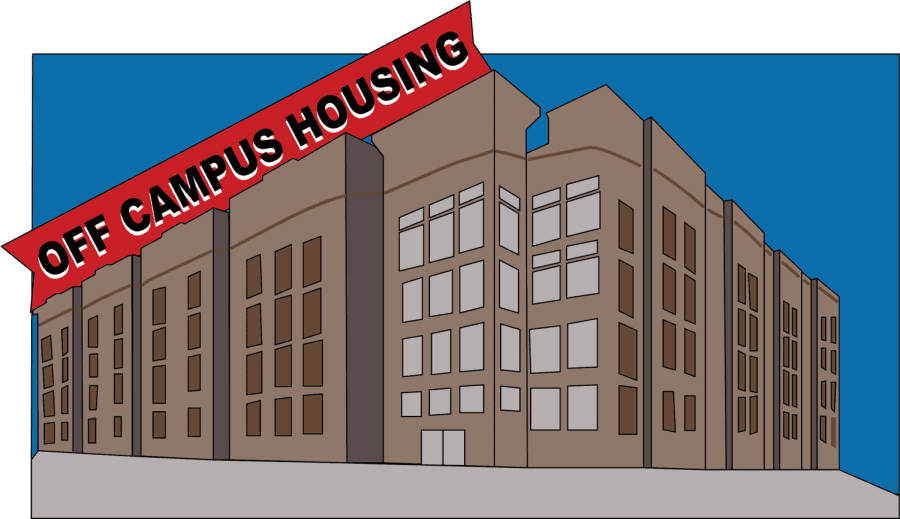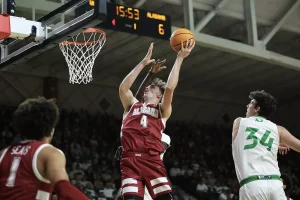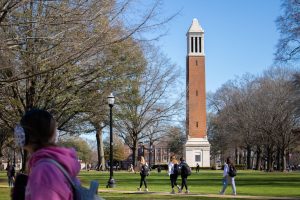Opinion | Dear UA, hold apartments accountable
September 20, 2020
The University of Alabama has publicly come under scrutiny for its procedures surrounding COVID-19. While some universities across the country decided to go completely online, UA officials were among the few hopeful college administrators reassuring students that they would be safe in a hybrid model.
Since classes resumed this fall, case numbers have fluctuated, guided in part by UA policy, including the recently lifted moratorium on in-person extracurricular events. UA’s latest reports show 294 students tested positive for the week of Sept. 4. From Sept. 11 to Sept. 17, the University reported just 119 cases.
In the wake of the pandemic, the University now offers students an array of resources that can be accessed online to help them make informed decisions as they transition to off-campus housing. Information on apartments, roommates, events and COVID-19 serves to help students safeguard their health and wellbeing and that of those who live with them – efforts that could seemingly quell concerns about living in tight quarters.
But while the University has made some efforts to inform its student body of COVID-19 resources, some apartment complexes have failed to issue proactive public statements about preventative measures they’re taking to protect their residents. Among them are The Lofts, The Grand at Rum Creek, The Cottages at Lake Tamaha and Redpoint Tuscaloosa offices.
In June, residents of The Grand stated that they were informed of a case in the complex via email. After the email, face masks and social distancing guidelines were encouraged at move-in but no further instructions have been provided. The main office is closed to all in-person traffic to practically and effectively respond to the pandemic.
This precaution seems to be a trend amongst many complexes in the Tuscaloosa area. Although closing main areas is beneficial, it does little to slow the spread if pools, courts, study areas and gyms are still available for use and aren’t being cleaned and disinfected properly, according to the Centers for Disease Control and Prevention.
“To maintain healthy operations, operators of public aquatic venues [and communal spaces] may consider: Avoiding group events, gatherings, or meetings both in and out of the water if social distancing of at least six feet between people who don’t live together cannot be maintained,” the CDC advises.
New residents of the Lofts acknowledged receiving an email from their apartment in regard to COVID-19, but only after a resident had contracted the virus.
“If you or anyone you know is showing signs of the symptoms associated with COVID-19, please remain calm and contact your doctor as soon as possible and arrange testing,” the email read. “Please self-quarantine while waiting for the test results.”
Community manager of the Lofts, Jeremy Becks, stated in an email that a resident had been diagnosed with COVID-19. Becks went on to advise all residents to continue to follow CDC guidelines and report any symptoms or positive results.
“We share your concern and are working closely with the local health department authorities and
the Centers for Disease Control (CDC) guidelines to address the matter,” Becks said in an email. “Although we cannot require you do so, if you learn that any person in your home has been exposed to or has tested positive for COVID-19, please continue to follow the CDC guidance and inform our site staff by phone or email so we can take further steps to attempt to protect the rest of the community”
Prior to the fall semester, the University rented out beds at the Lofts and moved students there from Bryce Lawn and the Highlands in order to make space for on-campus students who test positive for the virus. Off-campus students who test positive are required to self-isolate at home and report their results to the University.
By placing the onus on students to report positive results, the University is failing to hold apartment complexes accountable for their lax guidelines and preventative measures. But unfortunately, this trend is not limited to housing.
The recent moratorium to slow the spread of coronavirus is easing up. The vice president for student life, Myron Pope, sent out an email stating University-sanctioned events are now allowed to resume. However, restrictions on in-person gatherings still remain in effect.
“Social distancing, mask wearing and other health and safety protocols must be strictly observed in all of these environments,” Pope said in an email. “Student-organized gatherings and events remain prohibited at this time.”
The University’s plan to keep the virus under control as multiple athletic departments prepare to start their seasons still leaves big questions. On-campus housing can be monitored, but who’s to say students off-campus won’t host watch-parties and tailgates?
The University should work with apartment complexes around the city to create plans to contain COVID-19 during game days. Updated health and safety precautions for off-campus housing can ensure students living off campus are being just as safe as on-campus students. Cases could continue to rise if students aren’t properly informed about procedures.
Transparency, accountability and collaboration should be consistent with the CDC’s and the University’s guidelines to mitigate the health impact of the pandemic on the UA community.










